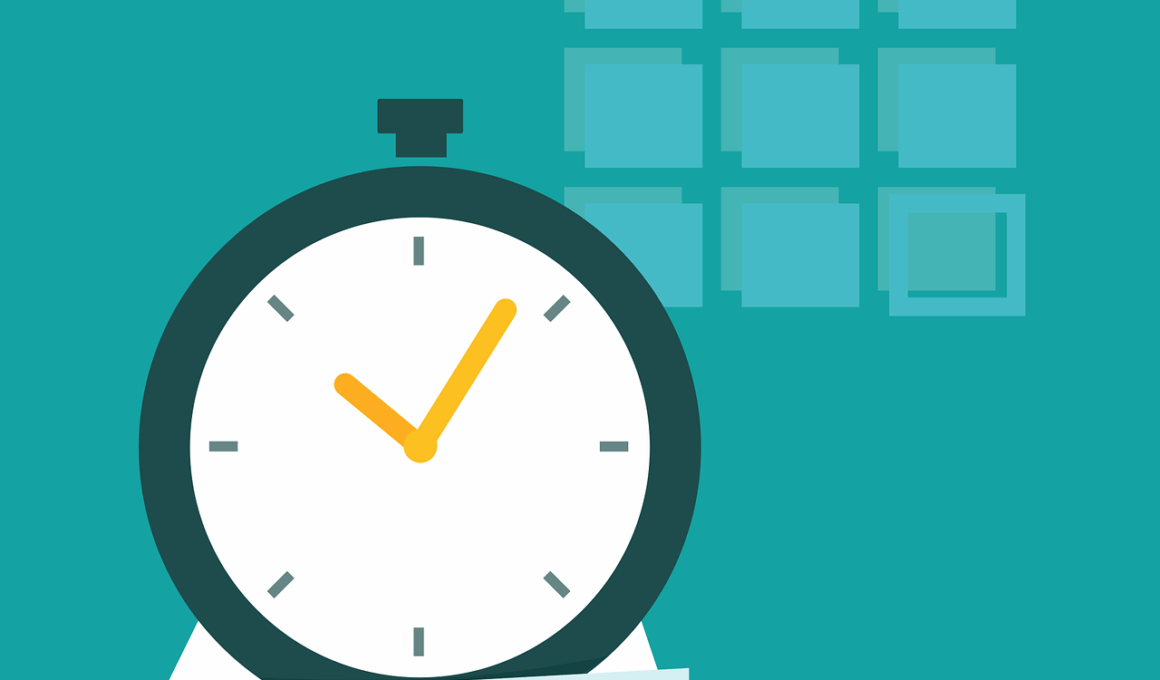Understanding Stress Triggers
Stress triggers can vary significantly from one individual to another. Recognizing what these triggers are is essential to developing effective stress management strategies. Triggers can include work deadlines, relationship issues, or even environmental factors like noise. To identify these triggers, take time to reflect on your feelings and responses during stressful situations. Begin by maintaining a stress diary. Document the circumstances that lead to feelings of anxiety or stress, noting the context, emotional reactions, and physical responses. Over time, patterns may emerge, allowing you to pinpoint specific triggers. This awareness is the first step towards change. Consider categorizing triggers as those you can control and those you cannot. This will help clarify where to focus your efforts. Moreover, it’s vital to understand that not all stress is negative. Some stress can motivate and inspire you to improve. Balance is key—learning to respond effectively is crucial. Engaging in mindfulness practices can enhance your self-awareness and improve emotional responses to these challenges. Ultimately, understanding your stress triggers can lead to healthier coping mechanisms and a more nurturing environment. Don’t shy away from seeking support if necessary.
Avoiding Stress Triggers
Once you identify your specific stress triggers, the next logical step is to develop strategies to avoid or manage them effectively. Avoiding certain triggers may seem like a straightforward solution, but often requires significant lifestyle adjustments. For instance, if work-related pressure causes high stress levels, consider discussing your workload with a supervisor to explore options for delegating tasks. Setting clear boundaries around work hours can also help minimize work-related stress. Additionally, if specific interpersonal relationships generate anxiety, limit your exposure to those individuals or engage in open communication to address the issues causing stress. In some cases, environmental changes can provide relief. For instance, creating a quiet space at home can help if noise frequently triggers stress. Incorporate relaxation techniques into your routine, such as deep breathing, meditation, or yoga. These practices not only help alleviate immediate stress but also foster resilience over time. Establish a network of support; family and friends can provide encouragement and alternative perspectives on situations that may be causing anxiety. Remember, prioritizing your mental well-being is crucial. Taking proactive steps leads to a healthier and less stressful lifestyle.
Recognizing Physical Symptoms
One of the most important aspects of managing stress involves recognizing its physical symptoms. Stress manifests in various bodily ways, which can often be overlooked. Common symptoms of stress include headaches, fatigue, muscle tension, and irritability. Take a moment to reflect on how you physically react to different situations. Are there particular environments or tasks that consistently make you feel tense? Effective stress management requires awareness of these responses. If you notice persistent symptoms, consult a healthcare professional who can provide a comprehensive assessment. In recognising these symptoms, you can take immediate action toward alleviation. Activities such as exercising, practicing deep breathing, or participating in relaxation techniques like guided imagery can soothe your body and mind. Regular physical activity is shown to reduce tension by promoting the release of endorphins, the body’s natural stress relievers. Moreover, adequate sleep and nutrition contribute to resilience during stressful periods. Ensure you nourish your body and prioritize restful sleep to enhance overall well-being. Developing acute awareness of your physical manifestations of stress promotes proactive actions that can significantly improve your quality of life.
Utilizing Coping Strategies
Successful stress management often hinges on employing effective coping strategies tailored to your individual needs. These techniques can be practical tools when navigating stressful events. From simple techniques to more deeply engaged practices, having a toolbox of strategies can empower you. Common coping mechanisms include practicing mindfulness, engaging in physical exercise, and connecting with supportive social circles. Mindfulness promotes presence in the moment and reduces worry about the past or future, allowing for a clearer perspective on stressful situations. Physical exercise not only enhances physical health but also functions as a significant mood booster. Just a short walk can provide a mental reset. Social connections foster emotional support. Share feelings with trusted friends or family when stress arises, as they may have insights into managing those pressures. Moreover, journaling can serve as an effective outlet for stress management. Writing helps articulate feelings and thoughts, aiding in understanding the underlying issues. Explore various techniques, assessing which resonate most with you. Regularly integrating these coping strategies into your routine can nurture resilience, equipping you with resources when faced with life’s inevitable stressors. Remember to be patient with yourself during this process.
Establishing a Relaxation Routine
Establishing a consistent relaxation routine is vital for effective stress management. Such a routine not only provides respite during challenging days but also fortifies resilience against future stressors. Begin by scheduling relaxing activities into your daily or weekly calendar, much like any other important appointment. Whether it’s taking a soothing bath, reading a book, or practicing meditation, find activities that promote relaxation and joy. Engage in deep breathing exercises or yoga to facilitate the release of built-up tension across your body. In addition, consider exploring hobbies you are passionate about, as embracing creativity can imbue life with joy and relief from daily pressure. Ensure that your relaxing spaces foster peace; declutter areas where you spend time. Soft music, candles, or nature sounds can amplify relaxation, making the environment more conducive to unwinding. Moreover, involve others in your relaxation activities; whether it’s a cooking session or nature walk, shared experiences often enhance enjoyment. Prioritizing a relaxation routine sends a positive message to yourself, affirming that your mental well-being is a priority. Establishing this routine provides structure and predictability, essential elements during periods of uncertainty. Remember, commitment to relaxation pays dividends.
Seeking Professional Support
If stress triggers seem unmanageable, seeking professional support is a courageous and beneficial choice. Mental health professionals can provide valuable insights and strategies tailored to your specific challenges. Psychologists and therapists work with individuals coping with anxiety, providing support and tools to navigate stressors effectively. Stress management workshops and group therapy sessions can also be invaluable. In these supportive environments, individuals share experiences, exchange coping strategies, and feel understood. Many individuals discover they’re not alone in their feelings of stress or anxiety, which can be remarkably comforting. If you’re contemplating therapy, research various types, as several approaches exist—cognitive-behavioral therapy (CBT), mindfulness-based therapy, or even art therapy. Each has unique benefits; find one that resonates with you. Always be open about your experiences during appointments; transparency maximizes the effectiveness of sessions. Furthermore, it’s increasingly common for individuals to utilize teletherapy options, making access to mental health support more convenient than ever. Online platforms can connect you with licensed therapists regardless of geographic location. Remember, seeking help is a sign of strength, not weakness, indicative of your commitment to maintaining your mental well-being.
Conclusion
In conclusion, effectively managing stress and its triggers is essential for achieving lasting well-being. Awareness is the first step in understanding your stressors, promoting insights about how to respond. By identifying triggers and avoiding or mitigating them, you can re-establish control over your mental health. Regularly practicing relaxation techniques, engaging in regular coping strategies, and maintaining an established routine can significantly impact how you experience daily stress. Additionally, reaching out for support when needed enhances resilience, offering new perspectives on challenges. Individuals who seek professional help often discover transformative tools that greatly aid mental health. Maintaining a healthy lifestyle, nurturing social connections, and incorporating relaxation routines further contribute to a balanced life. Remember, it’s a journey; consistently prioritizing self-care fosters growth and resilience. Adapting various strategies can help cultivate a more nurturing environment, both mentally and physically. By engaging in self-discovery, individuals arm themselves with resources for resisting adverse effects of stress. Ultimately, everyone has the capacity to improve their mental well-being, leading to a healthier and happier life. Embrace these strategies for a transformative experience, where personal empowerment thrives.
Find your path to improved stress management and flourish.


